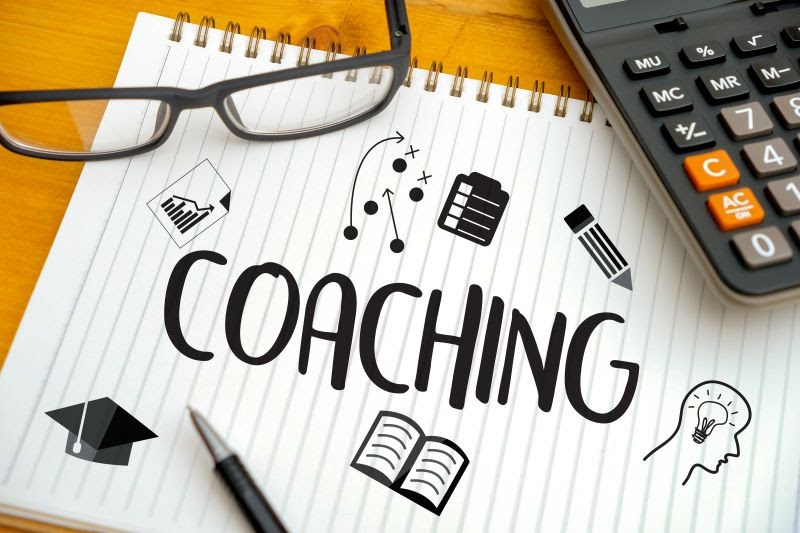
More and more people are choosing coaching as a tool for personal development in both their business and private lives. But what is coaching and why is it useful? What is the coaching process and in what areas can we improve ourselves?
What is coaching?
Coaching is a dialogue-based form of counselling, the aim of which is to help the coach to help the counselee to reach their maximum potential and to achieve the best possible performance. The focus is not on the problem, but on the individual, developing his or her strengths and abilities. It does not teach the participant, but teaches him to learn.
Two big areas of coaching:
- Life coaching: solving life challenges
- Business coaching: the aim is to solve challenges in different areas of business life
How did coaching evolve?
Coaching was originally an English term used in sport to describe the process of cooperation between coach and player. It started to be used in business and private life in the 1970s, after the publication of Tim Gallwey's book "The Inner Game". The idea behind Gallwey's book was that what goes on in the mind of the player is as important as what happens on the pitch. Although Gallwey's work was originally about tennis players, it was quickly realised that the theory could be applied to any area of life.
The concept was further developed by Graham Alexander and John Whitmore, who developed the well-known GROW model, which is still used in most coaching training. Since then, coaching has exploded in both the business and private sectors around the world, including Hungary.

What is the difference between coaching and counselling?
Although at first glance coaching and counselling in the traditional sense may seem to be one and the same, there are in fact important differences between the two.
These are:
- The coach does not give advice directly, but uses a well-structured conversation and specific techniques to guide the client to find the solution on their own
- At the heart of the process is the client and their personal development
- The coach does not need to be an expert in the client's field
- The aim of the sessions is to generate new ideas, insights, pro/con arguments and then to develop an action plan to be implemented by the client
- The parties are on an equal footing and there is a dialogue between them, as opposed to the more one-sided communication that is typical of counselling
What is the difference between coaching and psychotherapy?
It is also a common mistake to identify coaching with psychotherapy, as it aims at personal development. What is the difference between the two?
- Psychotherapy deals with psychological problems, behavioural disorders
- Focus on the past and how to deal with it, rather than the present and the future
- Coaching has a fixed duration and a measurable outcome. In contrast, therapy can last for years and there are no pre-defined expectations to be achieved
- Psychotherapy is a tool for deeper self-knowledge, but it does not focus on the development of skills.
What does a coaching process look like?
While coaching sessions can be tailored to your needs and vary depending on the area, they always include the following elements:
- The first sessions are about analysing the situation, identifying the problem. The goal is identified, the different ways to get there are assessed, and personal strengths and areas for improvement are identified.
- Assigning a practical task after the sessions
- The next sessions will build on the experience of the practical exercises. The aim is to consolidate the progress made and improve problem areas. If it is not realistic, it is possible to modify the original objective.
- Deciding between alternatives, putting them into practice
- If successful, close, if stalled, find the causes, continue development until the target is reached

Areas of coaching
A life coaching
Life coaching aims to address difficulties or stagnation in the private life. It helps to overcome communication difficulties, to deal with stress and conflict, and to improve human relationships, including relationships between couples.
A business coaching
In business coaching, the focus is always on solving a challenge in the business area. Often, the participant has no proven methods for solving the problem, or for some reason the methods they have used so far do not work. In such cases, the coach will offer new communication or business models and practices to help the participant resolve their dilemmas and develop their own action plan.
It is important that success is defined by the achievement of some specific, business-intelligible objective.
Business coaching is most common in the following areas:
Executive coaching
Executive coaching focuses specifically on senior managers, aiming to develop their ability to solve problems of strategic importance. The main areas of development are:
- Leadership development
- Support for taking action across the organisation
- Supporting the taking of measures affecting the organisation's competitive advantage and market position
- Solving the communication challenges of a senior management position
- Developing managerial self-awareness
- Developing leadership skills
Team coaching
Although most forms of coaching take place one-on-one, team coaching is an exception to this rule. The aim of team coaching is to facilitate joint work, to practice and develop playful communication, and to discover and resolve operational conflicts. Team coaching is recommended for small businesses, start-ups or even for members of a project team.
Staff coaching
Worker coaching supports members of the organisation to get out of a particular situation that is causing difficulties. Examples of such situations include lack of motivation, work-life problems, difficulties with workplace interaction.
Agile coaching
Career coaching
In today's society, it is not uncommon to have several careers or career changes during an individual's life. The focus of career coaching is on making the transition as efficient and smooth as possible for the participant, whether it is a career change, a job search or even starting a business.
WHAT SHOULD I CONSIDER WHEN CHOOSING A COACH?
1. CHOOSE BASED ON RELEVANT EXPERIENCE
Finding a coach is not an easy task and it helps to be prepared to explore the options available on the market. It can be important to know what someone has achieved or what mistakes they have made, what their qualifications are, how long they have been coaching, or how they think about their own professional development. You may also want to consider whether the problem you are coming with fits into the coach's professional portfolio, and whether they have team members or partners they can recommend to you instead if they feel that another professional is right for you.
2. CHOOSE COACHING STYLE AND DEVELOPMENT FOCUS BASED ON
In addition, it is important to know what type of coaching style, methods and tools your future coach uses, as these will help you to move towards your goals.
In simple terms, coaching styles can be differentiated according to the theoretical basis of the coaching activity carried out and the area of development it focuses on.
The main theoretical approaches are non-exhaustive:
- the psychodynamic,
- cognitive behavioural,
- is solution-focused,
- is person-centred,
- a gestalt,
- positive psychology,
- and transaction analysis approaches,
while the focus of development is:
- life,
- business,
- Career,
- team,
- peer,
- leaders,
- transformation
- and performance coaching.
3. CHOOSE FORMAT BASED ON
You may also be interested in the level of commitment required for each process, as you can commit to a process that lasts several months, where you meet your coach every week or two weeks, or you can choose to have a "coach to coach" process. You can also opt for a so-called shadowing format, where your coach follows your work every minute as your personal cultural anthropologist, gathering information about your behaviour patterns, communication and environment, so that he or she can analyse it with you and explore new ways and aspects with his or her observations and questions.
4. CHOOSE BASED ON TRUST, GOOD IMPRESSION AND PERSONAL CHEMISTRY
Finally, the success of the coaching process depends to a large extent on whether the 'chemistry' between you and your coach is right, and whether the right level of trust can be built. It can be useful to explore during the preliminary interview how it feels to talk to this person, whether the similarities and differences in your personal style can be of benefit to you, whether the stories, examples and processes you are told will inspire you to engage in a development process with him or her.
Of course, the coach will also be watching you: are you ready to commit to the change you want? What level of focus and energy can he expect from you? How open are you to trying new ways of doing things, exploring different perspectives? Yet, the coach lays the foundations of trust first by being an ethical professional, with details and frameworks that are properly communicated to you.
Have a question? Contact us!
Are you unsure about what form of support could solve your problems? Read more about our coaching services here, or contact us!

 Designabc
Designabc